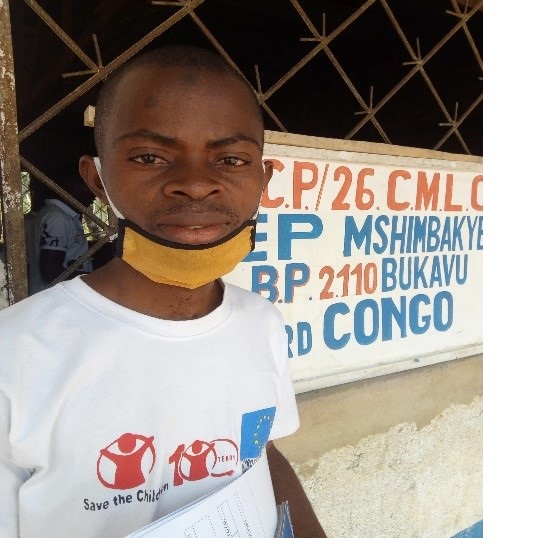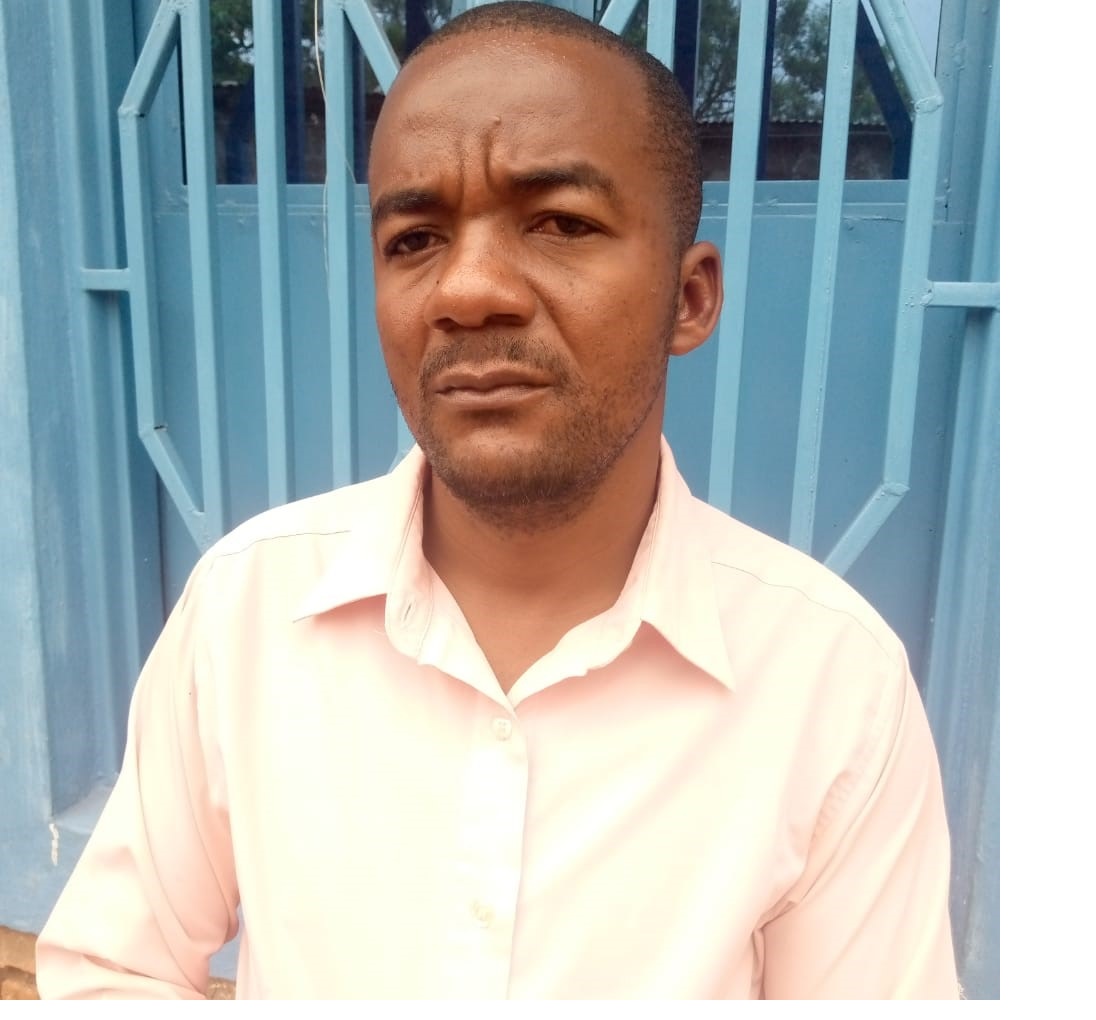Teacher participation in policy decisions is vital to find common solutions to problems and strengthen governance in education. Social dialogue can also help harmonize policy measures and improve cooperation between governments and the teachers who implement national policy and norms in education practice. As such, it can be argued that effective social dialogue is a key factor in guaranteeing quality education. During the COVID-19 pandemic however, which globally affected more than 100 million educators and support staff, teachers and their representative organisations were seldom consulted on decisions related to school closures or re-opening.
A recent virtual panel discussion held during the 2021 Comparative and International Education Society (CIES) conference highlighted ways to give teachers a greater role in social dialogue, focusing on examples from sub-Saharan Africa. The panel brought together experts and representatives of Education International, the International Task Force on Teachers for Education 2030, the FORSYNC project in Togo, a union representative from the Democratic Republic of Congo, and an independent education expert on sub-Saharan Africa. The panel aimed to identify challenges and opportunities to bring about more meaningful social dialogue based on evidence and lessons from the ground.
Understanding social dialogue
Social dialogue is a key concept of labour negotiation widely recognised in many countries. The International Labour Organization defines it as: “[all] types of negotiation, consultation or simply exchange of information between or among, representatives of governments, employers and workers, on issues of common interest relating to economic and social policy”. In the case of the education sector, this includes exchanges between governments and teachers through their unions. Since successful social dialogue structures and processes have the potential to resolve key education challenges, they should be institutionalized and protected by law, but can also be informal or a combination of both.
Dennis Sinyolo, Chief Regional Coordinator of Education International Africa Region, underlined the importance of exchange between governments and teachers, stating that “Social dialogue is critical for teachers and the teaching profession to ensure professional consensus-building and democratic participation through collective bargaining among the principal education sector stakeholders”.
More recently, focus has also been placed on the role of social participation in education. While less commonly defined, it can be understood as the involvement of additional partners in education policy dialogue that influence decision-making and outcomes. It can include civil society organizations, non-governmental organizations, voluntary associations, parents and students, faith-based organizations, foundations and the private sector. It is considered separate and complementary to traditional social dialogue processes and mechanisms. The levels of participation of these actors may vary along with the degree of agency and voice held by those affected by education policy. These levels of participation range from consultation and dialogue, to actual deliberation, co-administration, monitoring or accountability, but have one common goal: the constant improvement of the quality and relevance of education.
During the conference, the panel members presented four key lessons about how to support meaningful social dialogue in sub-Saharan Africa.
Lesson 1 – Teacher representatives need training to enhance their technical capacity
In many parts of sub-Saharan Africa, unions are not sufficiently prepared to participate actively and constructively in the development and monitoring of education policies and sector plans. In response to this, the Formation Syndicale (FORSYNC) project builds technical capacity of both unions and teacher organizations with training on advocacy, mobilization and how to carry out consultations and negotiations. Training also ensures that union members have better knowledge of the education system and its various channels.
According to Aichath Sidi, the FORSYNC project’s representative in Togo, technical capacity and knowledge must be strengthened to achieve effective social dialogue that improves education policies. Consultations and exchanges with unions have revealed that,
Training should focus on the process of developing education policies and their monitoring (joint sector reviews); on the use of educational indicators and teachers’ surveys; on the assessments of prior learning, the development of performance reports and the impact of the crisis, such as COVID-19, with its possibilities and effects for distance education. Additionally, the training should include a gender and an inclusive approach taking into account the most vulnerable and marginalized”.
Lesson 2 – Teacher unions need to be more autonomous
Social dialogue is highly dependent upon the autonomy, strength, and legitimacy of teacher unions. The case of the Democratic Republic of Congo (DRC) showed that one of the barriers to successful social dialogue was government ministries’ view of the ‘politicization’ of different teacher unions. In addition, social dialogue can fail because of the proliferation and fragmentation of unions and the lack of clear representation.
Teacher unions need to be strong and unified to overcome existing challenges – particularly so when governments are not willing to engage in meaningful social dialogue and collective bargaining. Unions must therefore navigate between protecting their autonomy and developing political influence without being perceived as overly ‘politicized’ by governments.
Technical capacity-building and training can also help with the depoliticization of unions, affirm their autonomy, and as a consequence strengthen social dialogue. A union representative from DRC, Jacques Taty explained,
Since the beginning of this year, we have been organizing training and information sessions for different members of the trade union organizations based on the fundamental principles of ‘unionism’, to foster competent organizations and ensure well-trained teachers capable to defend their own interests and take an active role in the development of education policy, and monitoring of its implementation”.
Lesson 3 – The policy environment is important
A national or local context based on transparent, participatory and accountable political dialogue is essential to foster wider social participation, democracy and governance. It is also important to ensure that the principal activities that contribute to social dialogue – information sharing, consultation, negotiation – can take place frequently, transparently and with positive results.
The FORSYNC project, however, identified an under-representation of women in different teacher unions, even though women represent a large majority of teachers in many countries. Trade unions should aim to guarantee more equal representation of females in social dialogue given their demographic weight. This is also important as previous research has shown how women play a key role to maintain union unity, and are generally less implicated in conflicts over leadership positions—a key source of conflict and discord (International Labour Office, 2010).
Other strategies have also shown potential in achieving constructive social dialogue and combat reluctance on the part of ministries to engage in it. For example, the National Federation of Teachers and Social Educators of the DR Congo/National Union of Workers of Congo (FENECO/UNTC) has adopted strategies for lobbying ministries of education including development and dissemination of press releases, radio and television broadcasts in addition to the training of trade unionists.
Lesson 4 – Other education actors should also be included (social participation)
Social dialogue in the education sector in the Democratic Republic of Congo is built around fundamental principles translated into law (i.e. Law n°14/004 of 14 February 2014 on national education), which guarantees a partnership approach whereby the state brings together various stakeholders to pool human, material and financial resources. It is a participatory approach fostering social participation in education aimed at involving all stakeholders in the design and management of the sector. It includes various actors including parents, promoters of approved private national educational institutions, religious denominations, grassroots communities, provinces, decentralized territorial entities, national public companies and private and non-governmental organizations. According to M. Taty,
“Since the participation of other partners is also crucial, unions should move away from the traditional role of mere demands/claims, a role that has shown its limits”.
In the era of globalization, it is necessary to rethink alliances, and unions should develop new partnerships such as with research centers and universities, which could contribute to networks promoting learning, research and discussion.
The FORSYNC project is supported by the Centre Research and Opinion Polls (CROP), which is an independent and non-politicized organization of African researchers working in different sectors. CROP has been the national partner in Togo of the Afrobarometer research network since 2012 and has already conducted four editions of surveys in Togo in parallel with other studies. These surveys gauge public opinion on economic, political, and social issues across the African continent. More recently, the project has also hosted discussions with unions and disseminated articles to ensure greater visibility of unions and their needs. Some training has also already been conducted with FENECO and further online training sessions are planned, particularly on the monitoring and evaluation of education policies.
Conclusion
Social dialogue between governments, employers and teachers' unions is essential to help to create a positive atmosphere in the work environment and to find concerted and consensual solutions. It is also key to help avoid overly top-down approaches in the education sector, as was experienced in some countries at the peak of the COVID-19 crisis.
To enhance teachers’ living and working conditions and improve the quality of teaching in general, teachers’ unions and other actors need to be able to propose alternative and innovative ideas that can complement those proposed by governments and private education institutions. To achieve this, unions need to demonstrate autonomy, be less fragmented, more engaged and better prepared. Training by various partners can help to close many of these gaps and empower unions to be partners in developing common responses. Furthermore, the continued engagement and openness towards other partners in policy dialogue and social participation can continue to complement traditional social dialogue structures and processes.
*
Photo credit: The Sunday Times/Antonio Muchave
Caption: Teachers from independent schools and members of the SA National Civic Organisation protest outside the Gauteng education department about the non-payment of salaries.
 For instance, Uwezo Mateso, a teacher at UHAKI primary school in Mushimbakye in Fizi, South Kivu, encouraged children to continue with their learning by listening to lessons broadcast via community radio with their parents, and doing work assigned remotely. On door to door visits to his pupils, Claude Buivuge Kasherangwa, a fifth-grade teacher at
For instance, Uwezo Mateso, a teacher at UHAKI primary school in Mushimbakye in Fizi, South Kivu, encouraged children to continue with their learning by listening to lessons broadcast via community radio with their parents, and doing work assigned remotely. On door to door visits to his pupils, Claude Buivuge Kasherangwa, a fifth-grade teacher at  Kasherangwa
Kasherangwa